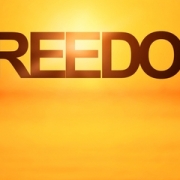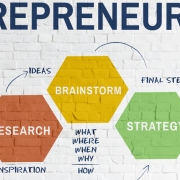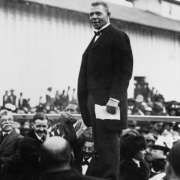The State of Georgia is one of the cheapest places in America for Hollywood studios to produce films. By using local crews they get large tax incentives. While this is political interference in economic activity, Georgia has nonetheless become the third largest filmmaking market in the United States, until now. In May 2019, Georgia’s governor signed into law a bill banning abortions after five weeks of pregnancy. Since then, Disney, Netflix, Viacom, Sony, Universal and other studios have threatened to boycott Georgia and cripple the state’s film industry if this law is enforced, except Poetic Justice Warrior Clint Eastwood.
Of course, Netflix will continue to produce in the Middle East where abortion is virtually illegal and female mutilation is common, and Disney is not inclined to disrupt its profitable partnerships in China where abortion is mandatory and unborn females are sacrificed first. As poetic justice would have it, Eastwood’s next film will be produced in Georgia, because, well, it is the true story of something that happened in Georgia. Not coincidentally, it combines elements of the last three articles in the Modern Poetic Justice Warrior series – the Drive By Media, the Diversity Delusion, and the Immorality of Government Force.
High Plains Drifter
The tagline at the end of the trailer for Eastwood’s new movie titled ‘Richard Jewell‘ says “The world will know his name and know the truth.” This is eerily similar to the end of Eastwood’s allegorical western movie classic High Plains Drifter. As the Eastwood character rides out of town the morning after the destruction of Lago, he passes its mayor and sheriff. Mordecai is erecting a gravestone and says to the passing Stranger, “I never did know your name.” The Stranger gazes at the headstone and says to Mordecai, “Yes, you do.” As he rides off into the desert, the sheriff then gazes at the new headstone. It bears the name Sheriff Jim Duncan.
Sheriff Duncan had been whipped to death by three men hired by the townspeople to protect the town’s secret of their gold mining operation. It turns out that Lago’s residents had also double-crossed Duncan’s murderers over the gold rights and were now desperate for protection from them. That’s where the Stranger comes in.
Metaphorically, Richard Jewell is Sheriff Duncan. In this case, Jewell was the security officer at the 1996 Olympics Games in Atlanta Georgia who discovered a bomb at Centennial Olympic Park and did everything he could to notify authorities, evacuate the area, and save as many people as possible from death and injury. But the Drive-Bys needed a sensational story, the Diversity crowd needed a white guy, and the Government needed an easy scapegoat. Richard Jewell checked all of their boxes for identity group stereotypes and vulnerability.
Unforgiven
Clint Eastwood’s singular ability to repudiate movie industry arrogance is rooted in two core principles – character and excellence. His excellence reached new heights in the characters of his last feature film of the American western genre, Unforgiven. Like a great artist integrates abstract concepts into a philosophical theme, Eastwood delivered a complex assortment of characters, each wrestling with conflicting moral choices, and all operating in an environment of fear. For the moviegoer, it challenges everything we thought we knew about the heroes and villains of the Wild West. One example of Eastwood’s genius is the journalist W. W. Beauchamp. As one reviewer relates,
Beauchamp is a writer that tells of derring-do heroics, gunslingers with a glint in their eye who deal death as some sort of heroic encore. This gives Unforgiven an excellent sleight of hand, for this West is grim and a destroyer of all illusions and it’s not controversial to say that this is indeed a good thing.
In this sense, Unforgiven is a wonderful metaphor for destructive social and political forces including media, who according to Secretary Hillary Clinton, are “our body politic immune system.” Another reviewer observes, “In fact, nearly every action in the film, however noble its inspiration, is ultimately perverted by an economic system founded on desperation.” Among other things, Unforgiven is about the disintegration of an individual’s spirit and society’s cohesiveness when people’s lives are merely damaged goods to be traded. This moral principle in Eastwood’s dystopian epic is a violation of the trader principle. As philosopher Ayn Rand explains in her novel Atlas Shrugged.
The principle of trade is the only rational ethical principle for all human relationships, personal and social, private and public, spiritual and material. It is the principle of justice.
The Mule
Hollywood actors flailing to be relevant have their narcissistic awards shows. Since 2016, these spectacles have become arrogant hate-fests for actors peddling their ignobly inspired commodities, themselves. Multiculturalism is their life-sapping opiate. For contrast, in 2018, Clint Eastwood was recreating a story about drug cartels peddling their own life-sapping opiates through an elderly, cash-strapped Korean War veteran. This hugely successful film, The Mule, was snubbed by the Academy for too little dramatic effect or too much political incorrectness. After all, Sinaloa (a Mexican drug cartel), is well, Mexican. In either case, Hollywood in its shameless reality, and The Mule based on a true story, are both reflections of a society in decline.
While Eastwood’s politics are live and let live libertarianism, the entertainment elites demand ideological purity that is fluid and deadly. As Eastwood explained in a Parade Magazine interview in 1997,
Abuse of power isn’t limited to bad guys in other nations. It happens in our own country if we’re not vigilant. Those in power get jaded, deluded and seduced by power itself.
Today’s entertainment industry denounces the classical liberal values that made them wealthy and gives them voice. All too many celebrate the thugs in Venezuela, Cuba, and Washington. The entire cabal is wedded to platitudes, have no interest in consequences, and are getting rich. As Rand explains about Eastwood’s warning,
Having money is not the measure of a man, it is how he got it. The power to create value, or the ability to manipulate? When men become the tools of men, blood drips. Chains or dollars, take your choice, there is no honor.
A Fistful of Dollars
The spaghetti western was particularly well suited to develop Clint Eastwood into an international star. In the enigmatic Stranger of High Plains Drifter, Eastwood was able to put a face on poetic justice punishing vice by having Lago’s residents paint their town red and renaming it Hell. However, in many other roles such as Dirty Harry, Eastwood’s character was more of an ends justifies the means vehicle for vigilante justice. In either case, his stories had a Mickey Spillane quality of appealing to mass audiences hungry for a hero with the courage to stand on virtuous principles.
Regarding rights as a moral principle, Eastwood told USA Today in 2004, “People should be able to be what they want to be and do what they want — as long as they’re not harming people.” This is the ethics of John Locke, and the essence of Clint Eastwood,
There’s a rebel lying deep in my soul. Anytime anybody tells me the trend is such and such, I go in the opposite direction. I have a reverence for individualism. I’ve always considered myself too individualistic to be either right-wing or left-wing.
Memorializing Richard Jewell’s story in the form a feature film quietly exposes Eastwood’s character – self ownership, which is the essential concrete for Locke’s founding American principle of self-government. The American Revolution was successful, in part, because it didn’t destroy society’s institutions. Instead, it created new ones founded in objective law. Eastwood hasn’t totally repudiated Hollywood. Instead, he created a more noble institution – Poetic Justice Warrior Clint Eastwood.













